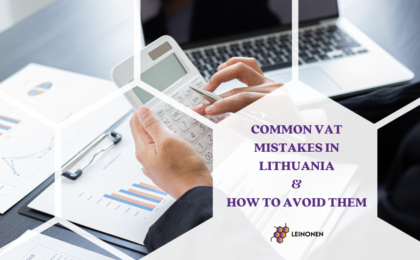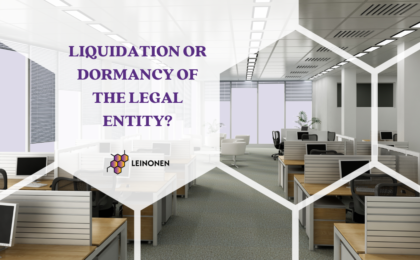THE BASIC REQUIREMENTS FOR EMPLOYMENT CONTRACT
An employment contract shall be concluded in writing between the employer and the employee. The contract shall be drawn up in two copies, each one for each party. In every employment contract, the parties must agree on the essential conditions of the contract:
- workplace (enterprise, agency, organization, structural subdivision, etc.);
- working functions (work of a certain profession, specialty, qualification or specific duties);
- wage;
- rights;
- responsibilities;
- duties;
- other.
TYPES OF EMPLOYMENT CONTRACT
With account taken of the type of work and its performance method, the following employment contract may be concluded:
- Open-ended Employment Contract;
- Fixed-term Employment Contract;
- Temporary Work Employment Contract;
- Apprenticeships Employment Contract;
- Contract on Project Work;
- Workplace Sharing Employment Contract;
- Employment Contract for Multiple Employers;
- Seasonal Employment Contract
THE DURATION OF THE PROBATION PERIOD
Lithuanian Labour Code foresees the opportunity to establish a probation period up to 3 months for the person to be employed. For short duration fixed-term employment contracts, probation period shall be set proportionally to the whole length of employment. The duration and conditions of the probation period shall be specified in the employment contract.
EMPLOYEES WORKING TIME:
- standard working time: 8 hours per day and 40 hours per week;
- shorter working time regime is obligatory for:
- persons under 18 years of age;
- employees performing work involving higher mental, emotional strain. The procedure establishing shorter working time is stipulated in the resolutions of the Government of the Republic of Lithuania;
- part- time work (e.g., 1 hour per day).
Maximum working time, including overtime, must not exceed 48 hours per week. Maximum working time including overtime and additional work must not exceed 60 hours per 7 days and 12 hours per day. When working on a summary recording of working time, maximum weekly working time is 52 hours.
THE MINIMUM REMUNERATION (from 1 January 2023)
Minimum hourly salary – EUR 5,14. Minimum monthly salary – EUR 840.
THE RULES FOR OVERTIME
Overtime is permitted under the cases listed in the Lithuanian Labour Code. Overtime works shall not exceed for each employee 8 hours in one week and 180 hours per year. Upon the written consent of the employee, overtime can be extended up to 12 hours per week.
The pay for overtime shall be at least one and a half of the hourly pay established for the employee. Pay can be higher, if overtimes happened during public holidays, nighttime, etc.
ANNUAL LEAVE
Employees gains the right to use part of annual leave when employee gains the right to at least one day of annual leave. For the second and subsequent working years annual leave shall be granted at any time of the working year in accordance with the schedule of granting annual leave.
The minimum annual leave is 20 working days per year if the employee is working five days per week and 24 working days if the employee is working six days per week. If the amount of working days per week is less than 5 days or different, then the employee is entitled to 4 weeks Annual Leave.
The average salary should be paid for Annual Leave. The average salary calculation rules are set by Government of Republic of Lithuania.
THE TYPES OF OTHER LEAVE
| Leave Entitlement | Remuneration from an employer | ||
| Time | Amount | Percentage | |
Medical leave granted for illness of an employee | Sickness benefit for the first two days of sickness coinciding with work schedule | Average salary | 62.06-100% |
Maternity Leave | 70 calendar days upon childbirth and 56 calendar days after the childbirth | – | – |
Paternity Leave | 30 days after childbirth | – | – |
Parental Leave | Up to child’s age of three years | – | – |
Other:
• educational leave;
• sabbatical leave;
• leave for performance of official or public duties;
• unpaid leave.
THE END OF EMPLOYMENT RELATIONSHIP
The employment contract may be terminated for the following reasons:
- during probation period;
- by agreement between parties;
- upon employment contract’s expiry;
- upon the notice of an employee;
- on the initiative of an employer without any fault on the part of an employee
- without notice (when the employee performs his/her duties negligently or commits other violations of labour discipline);
- on the employer’s will.
In case of dismissal, the employee is entitled to severance pay in the amount from one to six average monthly salaries taking into account the ground of termination.
THE PUBLIC HOLIDAYS IN LITHUANIA
- 1 January – New Year’s Day;
- 16 February – Day of Re-establishment of the State of Lithuania;
- 11 March – Day of Re-establishment of Lithuania’s Independence;
- (Western Church) Easter and Easter Monday;
- 1 May – the International Labour Day;
- 1st Sunday in May – Mother’s Day;
- 1st Sunday in June – Father‘s Day‘;
- 24 June – Midsummer and St. John’s Day
- 6 July – Day of the State (Coronation of King Mindaugas);
- 15 August – Assumption Day;
- 1 November – All Saints’ Day;
- 2 November – All Souls’ Day;
- 24 December – Christmas Eve Day;
- 25 and 26 December – Christmas days
THE TAXES APPLIED ON EMPLOYMENT INCOME
Payroll Taxes | Percentage |
Employee’s part | |
| Personal Income Tax (PIT) | 20%/32% |
| Employee’s Social Security Contributions | 19.5% |
| Participation of employee in pension scheme | 3% |
Employer’s part | |
| Social Security Contributions paid by the employer | 1.77% |
Source:
Personal Income Tax (PIT)
Employee’s social security contributions
Social security contributions paid by the employer
THE TAX-EXEMPT AMOUNT FOR SALARY REMUNERATION
Depending on the gross salary amount the following non-taxable amounts are applied for Lithuanian tax residents:
- gross salary amount is equal or less to EUR 840 – non-taxable amount is EUR 625;
- gross salary amount is more than EUR 840 but less than EUR 1,926– non-taxable amount is calculated according to the following formula: 625 – 0,42 x (Gross Salary – 840);
- gross salary is above EUR 2 865– all amount is taxed.
The following individual non-taxable amounts are applied for Lithuanian tax residents having a limited working capacity:
- EUR 1005, in case the working capacity is 0-25%;
- EUR 935, in case the working capacity is 30-55%
THE PROGRESSIVE PERSONAL INCOME TAX RATE
The employment income is taxed by applying 20% PIT rate (15% PIT rate is applicable for sickness pay).
However, if in 2023 employment income exceeds 60 average monthly salaries, i.e. EUR 101,094 , higher 32% PIT rate is applicable for exceeding amount. Please note that it is an obligation of the employee to report his/her annual income and pay Personal Income Tax obligation arising due to higher Tax rate.
THE SOCIAL SECURITY CONTRIBUTIONS “FLOOR”
Companies have to pay social security contributions for part-time employees whose monthly salary is lower than the minimum monthly salary (hereinafter MMS) from gross amount of MMS (i.e. EUR 840). There are the following exemptions of the social security contributions “floor”:
- the employee is employed by another employer in Lithuania (total wage is not required to reach the MMS);
- the employee receives a state pension for old age or lost capacity (disability) pension;
- the employee is not older than 24 years;
- the employee has 0-55% working capacity;
- the employee receives maternity, paternity, parental leave benefits.
THE SOCIAL SECURITY CONTRIBUTIONS “CEILINGS”
If in 2023 employment income from the same employer exceeds 60 average monthly salaries, i.e. EUR 101 094, social security contributions “ceilings” become applicable. Please note that social security contributions rates indicated above include compulsory health insurance contributions (6,98%) for which “ceilings” are not applicable.
Therefore, if the employment income exceeds the threshold, only rate of 6,98% would be applicable for exceeded value.
TAX EXEMPT BENEFITS
The following payments are not considered as benefits in kind:
- small value (not exceeding EUR 200) prizes, non-monetary presents received from employer;
- compensation received from employer for health treatment when required by law;
- working clothes, shoes, equipment and other assets given by employer to use only for work functions;
- directly to educational institutions paid amounts for individual‘s education;
- benefit received by an employee when an employer pays for rail and road public transport tickets which are used to travel to and from the work;
- personal income tax, social security and compulsory health insurance contributions paid on behalf of an individual.
Benefit in kind is taxed as employment income.
BUSINESS TRIPS GUARANTEES TO THE EMPLOYEES
Employees shall be guaranteed that during the period of the business trip they retain their job/position and wage. Moreover, they shall be paid:
- per diem rates;
- the costs related to the business trip.
THE RULES IN RELATION TO PER DIEM RATES
The legislation establishes the maximum amount per diem.
For the business trip inside Lithuania, EUR 15 per diem rate is established.
Per diem for one day business trip inside Lithuania may not be paid under the Lithuanian Labour Code.
Per diem rates for the business trips outside Lithuania are established by the Government and differ depending on the destination.
THE POSSIBILITIES TO PAY RATES PER DIEM APPLIED BY THE GROUP
In case payable rates are higher than regulated by the local legislation, the difference is taxable.




